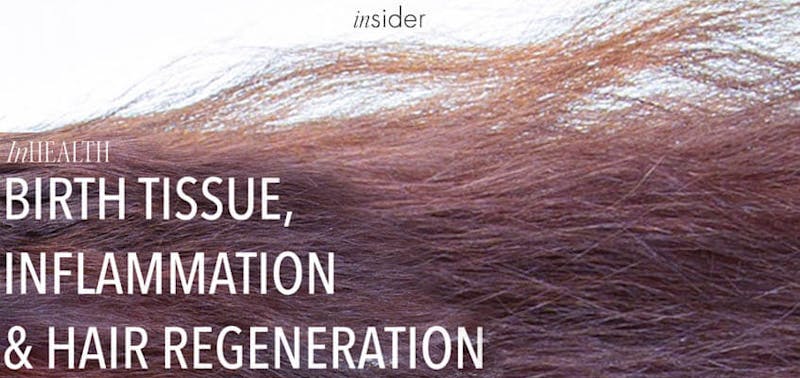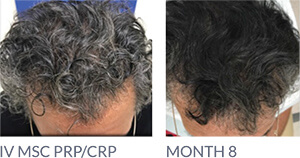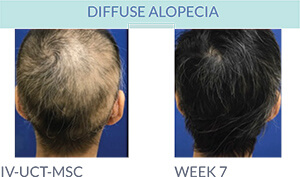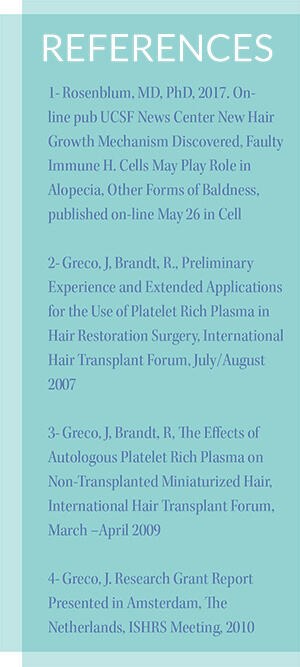
BY DR. JOSEPH GRECO
Inflammation causes acceleration of male and female pattern hair loss and is the common thread with all autoimmune hair loss diseases like Alopecia Areata (AA), Discoid Lupus (DL), lichen planopilaris (LPP) and other cicatricial alopecia’s. Therefore, reducing systemic inflammation is critical in modifying (slowing down) the side effects such as hair loss and scarring.
Defects in the immune system also have effects on hair and a study, published online May 26, 2017 in Cell, suggests “defects in Tregs could be responsible for alopecia areata, a common autoimmune disorder that causes hair loss and could potentially play a role in other forms of baldness, including male pattern baldness”. 1
“We think of immune cells as coming into a tissue to fight infection, while stem cells are there to regenerate the tissue after it’s damaged,” M. Rosenbloom said, “But what we found here is that stem cells and immune cells have to work together to make regeneration possible”. 1
The following Greco Medical Group patient exemplifies the theory that stem cells and immune cells must work together to make hair regeneration possible.
The patient below is a 63-year-old male with Male Pattern hair loss and a positive scalp biopsy for lichen planopilaris (LPP), a scarring hair loss disease. Hair transplantation was not an option with LPP, so Umbilical Cord Stem cells were used to reduce inflammation systemically, support the immune system and this is his result 8 months after one treatment.

The patient’s hair color darkened significantly, the character and aesthetic density of his hair increased. Systemically, positive side effects occurred when the patient PSA dropped from 2.9 to 2.1 and LDL Cholesterol dropped from 121 to 95 with no lifestyle change.
A second patient suffering hair loss from diffuse Alopecia Areata, who failed all traditional therapy, was successfully treated with Stem Cell therapy and these were her results at 7 weeks.

Finally, this novel treatment may be an alternative protocol to regenerate hair and modify the progression of inflammatory diseases in cicatricial alopecia’s when hair transplantation is not indicated and other systemic treatments fail. More studies are definitely warranted.
In 2007, Joseph Greco published our Preliminary Experience and Extended Applications for the Use of Platelet Rich Plasma in Hair Restoration Surgery2 then, in 2009, he published The Effects of Autologous Platelet Rich Plasma on Non-Transplanted Miniaturized3 and the use of PRP as a non-surgical treatment for hair restoration was introduced.
In 2009, he received a Research Grant to Study the Effects of Autologous Growth Factors in Alopecia Areata2 and reported the results in Amsterdam, The Netherlands 2010. A patent was then granted for a Skin Treatment for Promoting Hair Growth4 utilizing PRP for hair regeneration on Jan 5th, 2016.
Dr. Greco has trained physicians from 20 countries in the use of PRP and continues in advanced biologics treatments for hair restoration as well as pain and orthopedic injuries with GMG proprietary methods. These proprietary hair restoration treatments have evolved over the past 12 years and 8,000 treatments.
Joseph Greco, PhD, PA/C 1990 Main Street, Suite 700, Sarasota, FL 34236 941.952.3300 grecomedicalgroup.com

The best way to evaluate a patient is to arrange a personal, in-depth consultation. However, this is impossible for many patients who fly in from other parts of the country or world. For this reason we have developed the remote consultation package, which is an acceptable alternative to the in-person personal consult.
Once your photos and questionnaire are reviewed, we will telephone you to discuss your questions or concerns regarding the procedure. You will also be given a suggested treatment plan and the costs involved. Click here for more complete information on our free on-line hair restoration consultation process.
